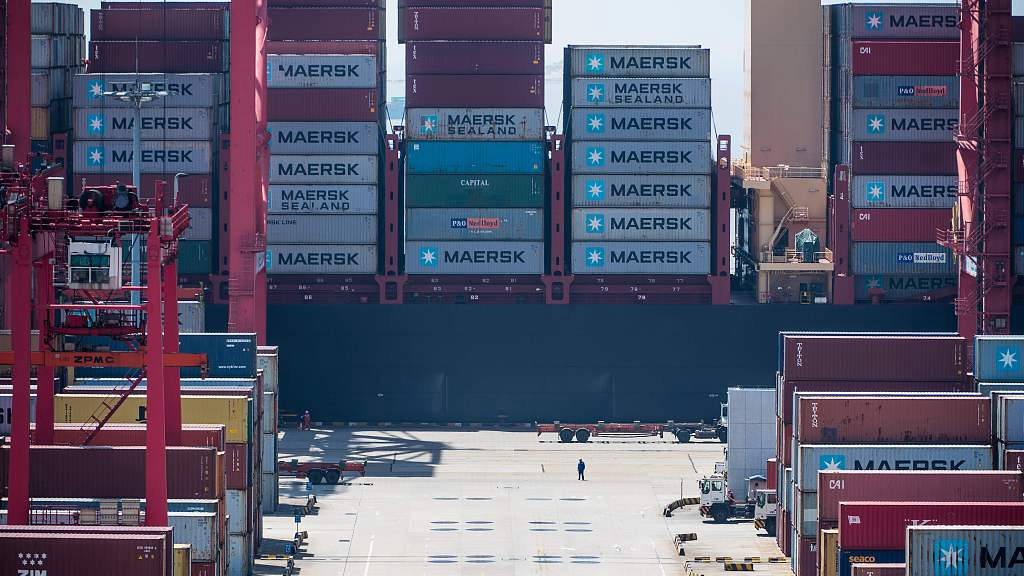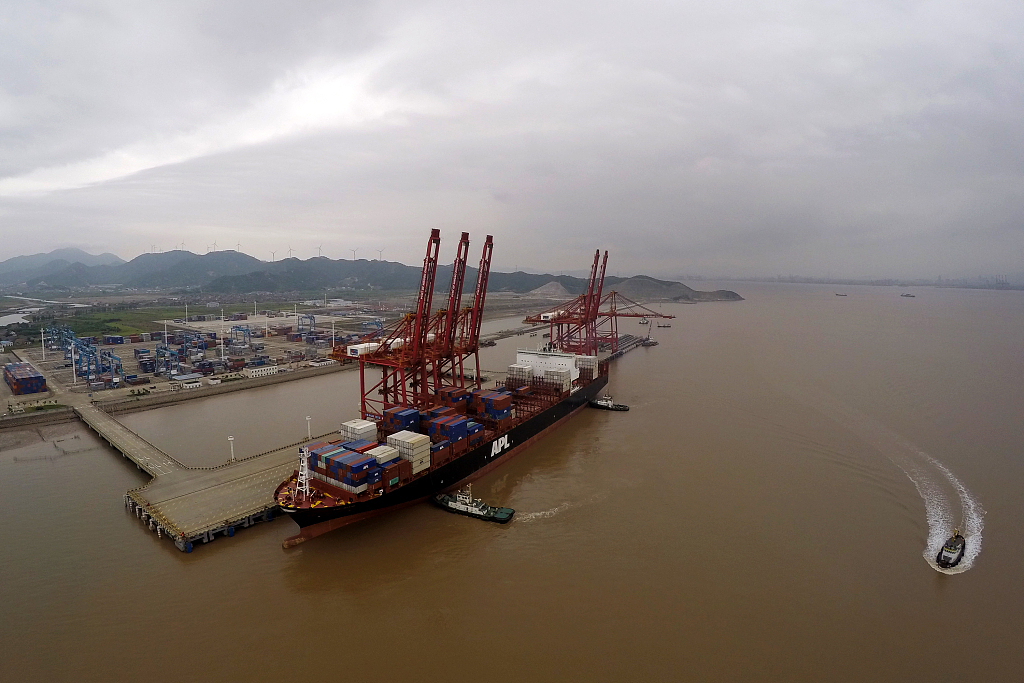

Editor's note: The article was first published by Global Times on August 24, 2019. It does not necessarily reflect the views of CGTN.
After China on Friday unveiled additional tariffs on 75 billion U.S. dollars of American goods, the U.S. reacted vehemently. Washington announced on the same day that it will hike tariff rates on 250 billion U.S. dollars' worth of Chinese goods from 25 to 30 percent, and another 300 billion U.S. dollars in Chinese products currently tariffed at a rate of 10 percent will be tariffed at 15 percent.
The U.S. has clearly shown a drastic mood swing due to China's counterattacks. Since countermeasure is a common practice in tariff wars, the U.S.' bullying attitude seems particularly ridiculous.
Such a move from the U.S. side demonstrates its arrogance and narcissism. The U.S. is launching a brutal trade war with caprice. After it takes action, it must be prepared for counterfire. But the U.S. side seems unable to withstand such strikes. It obviously needs to review the rules of the trade war.
We need to teach the U.S. side some common sense about the trade war. It is an extreme gamble which will lead to a lose-lose result. Temper is useless in a trade war.
No one believes that a trade war can be won by one side unilaterally. When the U.S. advocates how many benefits the trade war can bring to itself, the entire world laughs at its overt lie.
Washington is about to impose additional tariffs on all Chinese products exported to the U.S. It has already played its best cards, and the latest cards have been played with emotions. Apparently, the U.S. cannot accept such a reality: Why can China still remain firm and unshakable after the U.S. has applied maximum pressure?

A cargo ship in a port in Zhoushan, China's Zhejiang Province. /VCG Photo
The U.S. is far too confident. It has chosen China, the world's second-largest economy, whose market size is very close to the U.S.', as an opponent to reset global trade rules. This is a serious strategic mistake.
The current U.S. administration misunderstands how to apply strength in modern international relations. It believes that maximum pressure is not only a way to achieve unreasonable goals, but also a shortcut to those goals.
But the reality is that the U.S.' maximum pressure has met with setbacks in various directions. In recent years, the U.S. has been stirring up things in diplomacy but has achieved barely anything.
China and the U.S. are the two largest economies in the world. The overall economic strength of the U.S. is stronger than that of China. The U.S. may be good at fighting a "trade blitzkrieg," but when it comes to a protracted trade war, Chinese society has an obvious advantage in digesting problems caused by the trade war.
The U.S. side is increasingly feeling the burden due to the political timetable of elections and the concerns over an economic recession. Its ambitions come with worries.
China's strategy is quite simple. We are not willing to fight trade wars. All counteractions are forced and are pushed by China's national sovereignty and development rights.
The U.S. has been swayed by considerations of gains and losses, but China stays unperturbed. The escalated trade war will certainly lead to greater losses, but Chinese society has already made it clear that this confrontation concerns the country's future. We are willing and able to bear these losses.
In response to the new U.S. tariffs, China is bound to take further actions. When the U.S. threats are transformed into practical actions, China's new counterattacks will never be absent.
(If you want to contribute and have specific expertise, please contact us at opinions@cgtn.com)

Copyright © 2018 CGTN. Beijing ICP prepared NO.16065310-3
Copyright © 2018 CGTN. Beijing ICP prepared NO.16065310-3